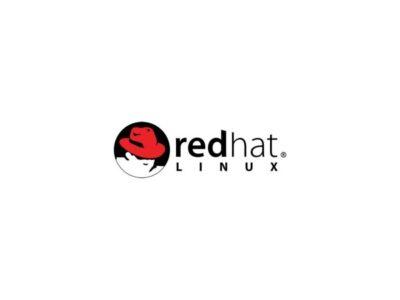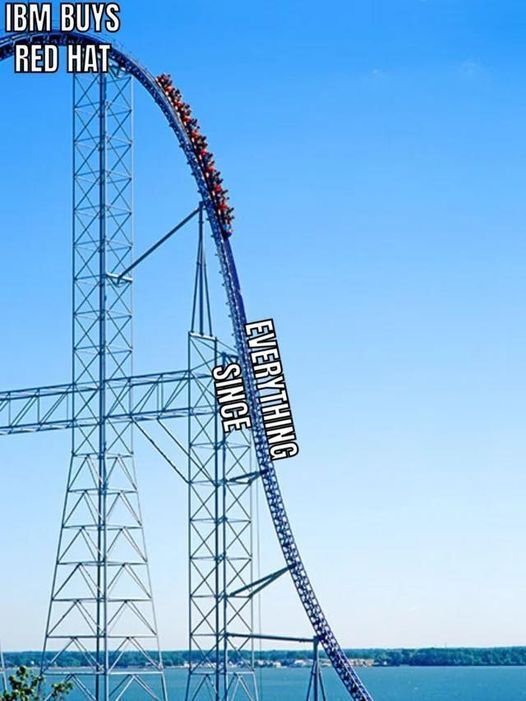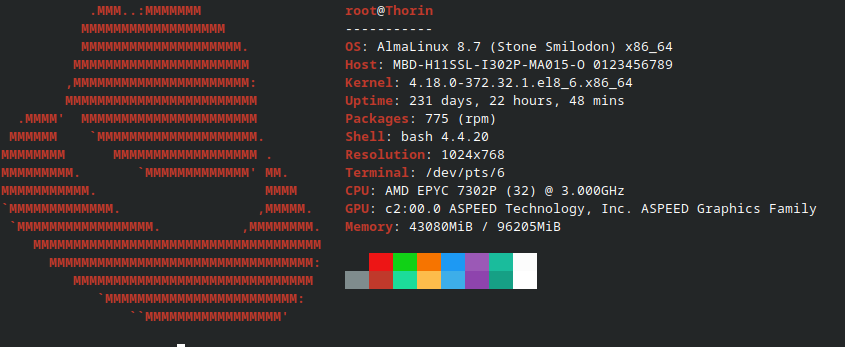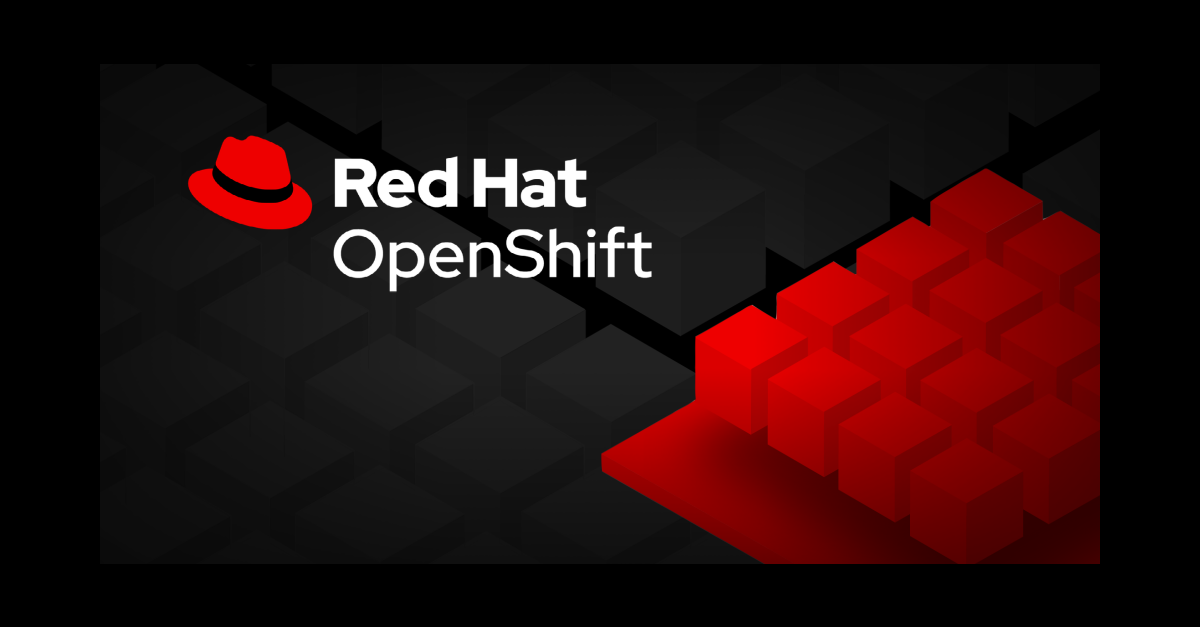#redhat
8 Likes
3 Comments
Gewinner und Verlierer nach Red Hats Coup
https://linuxnews.de/gewinner-und-verlierer-nach-red-hats-coup/
#redhat #Canonical #suse #Debian
Red Hat Enterprise Linux source code no longer available to the public: This effects various downstream distros based on it

Red Hat has decided to stop making the source code of RHEL available to the public. From now on it will only be available to customers — who can’t legally share it. This is very bad news for downstream projects which rebuild the RHEL source code to produce compatible distributions, such as AlmaLinux, Rocky Linux, EuroLinux, and Oracle Unbreakable Linux.
The core difference is that CentOS Stream is upstream of RHEL: it’s what will become the next point release of RHEL. It’s a sort of continuous rolling beta of the next version of RHEL. Alma, Rocky, and so on, and the former CentOS Linux, were downstream of RHEL: they were rebuilds from the same source code, guaranteeing perfect compatibility (and stability).
Red Hat is still “complying” legally with the GPL in that they do provide the source code to their customers, but that code may not be shared further by anyone else.
It does sound like there may be also a sort of workaround for the downstream distros, but it’s not ideal. So we’re going to have to see how they respond with their plans going forward.
Red Hat was acquired by IBM in 2019, and apart from this move, there have also been some layoffs made at Red Hat (as with many other global companies).
See https://www.theregister.com/2023/06/23/red_hat_centos_move/
#Blog, #linux, #opensource, #RedHat, #technology
6 Likes
15 Comments
Liebes Red Hat, brennt euch eigentlich der Hut?
https://linuxnews.de/liebes-red-hat-brennt-euch-eigentlich-der-hut/
#redhat #IBM
3 Likes
#Redhat is doing another #systemD and doubling down on #Walyand by dropping #LibreOffice, because apparently editing images is more important than editing documents. #mywayorthehighway #debian is sure to follow again
https://lwn.net/Articles/933525/
https://gist.github.com/probonopd/9feb7c20257af5dd915e3a9f2d1f2277
2 Likes
3 Comments
2 Shares
Wird Fedora künftig ohne LibreOffice ausgeliefert?
https://linuxnews.de/wird-fedora-kuenftig-ohne-libreoffice-ausgeliefert/
#fedora #redhat #flatpack

One day in May in 1997, I tried #RedHat #Linux. Interestingly, it booted directly from CD on my laptop. Why couldn't Windows do this? I would discover that this Linux distribution did so much more on a basic install. I would discover my #ISP hosted a usergroup and helped me set up a webserver, mail server, static IP address, and so much more. A month later, I wiped out the windows partition I never used to make room for all the free applications and media I discovered. The computer was so much faster since I had control what part of applications compiled. Pretty soon, I was traveling to Atlanta for the Linux expo with many others around the world.
25 years later, seeing people struggle with Windows boggles my mind. I guess commercial software is like sugar in food. People can't quit. I no longer use any commercial Linux distributions as they share many types of hostile vendor lock in such as Microsoft.
18 Likes
14 Comments
1 Shares
Postfix minimal sur un serveur dédié sous Rocky Linux 8
https://blog.microlinux.fr/postfix-minimal-dedibox-rocky-linux-8/
#redhat #email
1 Shares
Protéger SSH avec Fail2ban sous Rocky Linux 8
https://blog.microlinux.fr/fail2ban-ssh-rocky-linux-8/
#redhat #sécurité
1 Shares
Systemd supremo Lennart Poettering leaves Red Hat for Microsoft
To considerable amusement in the Linux community, the infamous lead developer of systemd has a new job – at Microsoft.
The news surfaced on a Fedora mailing list when someone found that they were unable to tag Poettering in a bug report because his Red Hat Bugzilla account was disabled, to which Poettering responded that he had created a personal account.
This has caused much merriment in comment threads on sites such as Phoronix, Hacker News, and Slashdot, from "Welcome home, Agent Poettering!" to "Good work!" to various quips about future combined Linux-plus-Windows operating systems.
Although near universally adopted in almost every mainstream Linux distribution, systemd remains highly controversial, as The Reg has covered at considerable length. Despite all the furor, systemd is merely one example of a trend towards richer systems-management tools on modern xNix systems, such as SMF in Solaris and its various open-source descendants or Apple's launchd. ...
From about a week ago, though I'd missed it at the time.
This has resonance for those engaged in the Linux community. I've long been strongly leery of systemd, in roughly equal parts based on its design, on Poettering's own exceptionally abrasive personality and disregard for valid technical complaints, and a remarkably (and unpleasantly) fanboi-ish cult which grew up around the system. It's all but entirely dominated Linux distributions, including Debian, which has considerably cooled my own enthusiasm (for both Linux and Debian) over the past few years.
https://www.theregister.com/2022/07/07/lennart_poettering_red_hat_microsoft/
8 Likes
"When you install a Linux system its just a bunch of RPM or DEB packages. For example of you install CentOS 7.8 Minimal variant you end up with several hundred RPM packages installed. After a week or month many of these packages will get updates sometimes making this CentOS system unusable or even unbootable (recent GRUB Boothole problem for example). On the contrary FreeBSD comes with a Base System concept. This means that when you install FreeBSD you install a minimal system as a whole. No packages or subsystems to be separately updated. Just whole Base System. That means that /boot /bin /sbin /usr /etc /lib /libexec /rescue directories are untouchable by any packages. When you decide to install packages (or build them using FreeBSD Ports) they will all fall into the /usr/local prefix. That means /usr/local/etc for configuration. The /usr/local/bin and /usr/local/sbin directories for binaries. The /usr/local/lib and /usr/local/libexec for libraries and so on. The FreeBSD Base System kernel modules are kept in the same dir along with the kernel in the /boot/kernel directory. To make things tidy all kernel modules that are provided by packages go into the /boot/modules dir. Everything has its place and its separated."
All this quickly became lost when #systemD from #Redhat aggressively took over...
8 Likes
7 Likes
10 Comments
2 Shares
#redhat ought to mention that now, in #ibm as boss/master, they are "IBM employees 100% of the time" (even after work) https://www.redhat.com/sysadmin/combine-job-and-hobby
#IBM #RedHat is once again shilling #Microsoft #ProprietarySoftware ; imagine Ukraine's minister of defend shilling Putin https://developers.redhat.com/articles/2022/03/04/create-azure-red-hat-openshift-cluster-less-5-minutes
#redhat managers and engineers have been leaving #ibm in droves. Do you really want to take their advice on "tortu[ring] IT talent"? https://enterprisersproject.com/article/2022/2/it-leadership-3-tips-nurture-it-talent
"A successful digital transformation strategy involves more than just technology" but a bunch of clueless managers who break stuff, increase complexity, and call engineers "dinobabies" https://enterprisersproject.com/article/2022/3/digital-transformation-3-it-culture-traps #redhat #ibm









